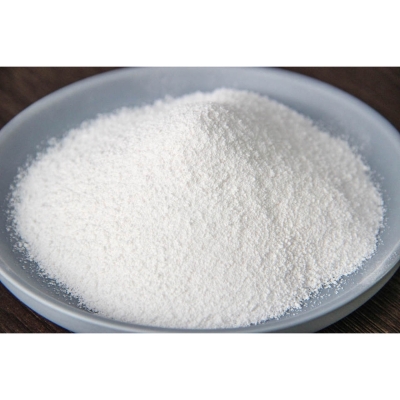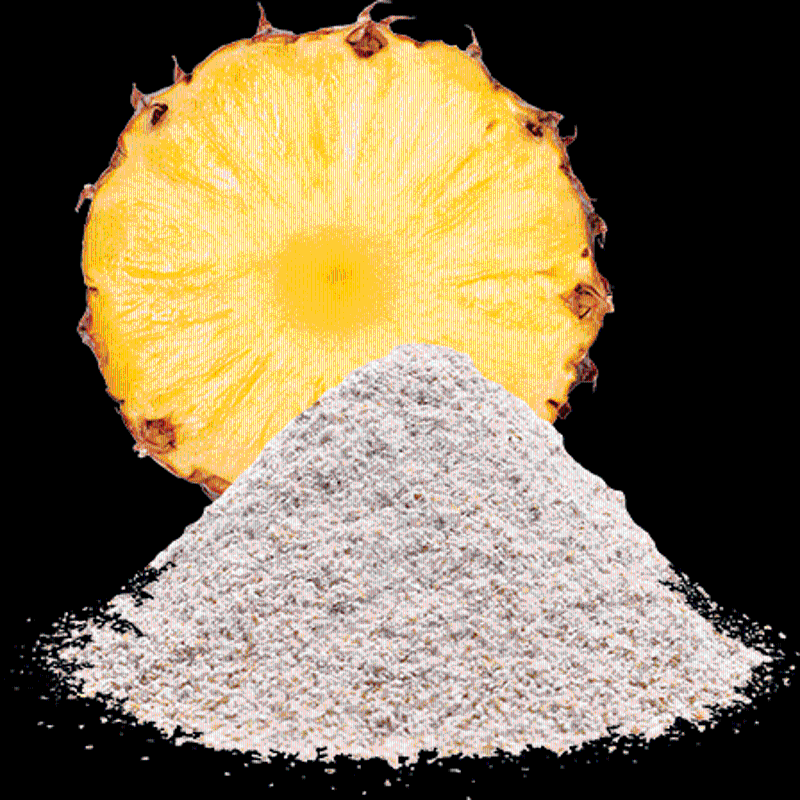Essential knowledge of the use of enzyme additives
-
Last Update: 2020-06-29
-
Source: Internet
-
Author: User
Search more information of high quality chemicals, good prices and reliable suppliers, visit
www.echemi.com
first enzyme is a protein, and its function in the digestive tract requires a certain temperature, pH, and osmotic pressureMost enzymes are not resistant to the "high temperature" above 45 degrees, so the damage to feed grain is irreversible, plus more, is not helpfulThe so-called stabilization technology, package, microcapsuleization, did not completely solve this problemTake lactase as an example, it can make milk into a coagulation- shape, its operating temperature is the mother temperature, pH near neutralThe effect of osmosis pressure on enzyme activity is mainly affected by two aspects, one is the protein level in the feed, and the other is the level of mineral trace elements in the feedThe higher the level of feed protein, the greater the gastrointestinal osmosis pressure, a large amount of water into the intestine, resulting in a decrease in the concentration of effective enzymes, reduced feed digestion efficiency, not fully digested food into the back intestine section, the back of the intestine section also high seepage, resulting in waterIt is not only chlorine, sodium and potassium that have a greater impact on osmosis in mineral trace elementsOnly for the convenience of calculation, but divalent metal ions and sulfates also have a considerable effect on intestinal osmosis pressureAn obvious example is the increase in stomach lesions in the broiler after the large application of lysine sulfatesBecause the trace element mineral salts in feed are mostly sulfatesXCH
Enzymes need the participation of some metal ions to function, magnesium, iron, zinc, copper, manganese, selenium is the active center of many enzymes, so the trace elements added to the feed are best for their active form in the body or can be converted into active forms of precursor substancesMetal oxides are not only not absorbed by the body, but also consume antioxidant enzymes in the body to maintain the body's steady stateHave I seen some mold mold, based on metal oxides, when used on the enzyme activity has no effect? This is not yet knownXCH
Although enzymes are biologically efficient, they also require enough substrates Now a large number of applications of phytic enzymes, in young animals the effect is not obvious, is because of its feeding in the amount of grain is small, phytic phosphorus is very small Another example of wheat enzyme's main components are glucans and polysase, in the poultry food in small mecca amount within 20%, do not need to add this wheat enzyme, the body's own bacteria can use these non-starch polysaccharides, but beyond this limit, need to add enzymes, because the body can not deal with those XCH
In today's increasingly developed proteomics, is the price/performance ratio of enzymes appropriate? It's also about speaking in practice XCH
First of all, the enzyme is a protein, and its function in the digestive tract requires a certain temperature, pH, and osmotic pressure Most enzymes are not resistant to the "high temperature" above 45 degrees, so the damage to feed grain is irreversible, plus more, is not helpful The so-called stabilization technology, package, microcapsuleization, did not completely solve this problem Take lactase as an example, it can make milk into a coagulation- shape, its operating temperature is the mother temperature, pH near neutral The effect of osmosis pressure on enzyme activity is mainly affected by two aspects, one is the protein level in the feed, and the other is the level of mineral trace elements in the feed The higher the level of feed protein, the greater the gastrointestinal osmosis pressure, a large amount of water into the intestine, resulting in a decrease in the concentration of effective enzymes, reduced feed digestion efficiency, not fully digested food into the back intestine section, the back of the intestine section also high seepage, resulting in water It is not only chlorine, sodium and potassium that have a greater impact on osmosis in mineral trace elements Only for the convenience of calculation, but divalent metal ions and sulfates also have a considerable effect on intestinal osmosis pressure An obvious example is the increase in stomach lesions in the broiler after the large application of lysine sulfates Because the trace element mineral salts in feed are mostly sulfates XCH
Enzymes need the participation of some metal ions to function, magnesium, iron, zinc, copper, manganese, selenium is the active center of many enzymes, so the trace elements added to the feed are best for their active form in the body or can be converted into active forms of precursor substances Metal oxides are not only not absorbed by the body, but also consume antioxidant enzymes in the body to maintain the body's steady state Have I seen some mold mold, based on metal oxides, when used on the enzyme activity has no effect? This is not yet known XCH
Although enzymes are biologically efficient, they also require enough substrates Now a large number of applications of phytic enzymes, in young animals the effect is not obvious, is because of its feeding in the amount of grain is small, phytic phosphorus is very small Another example of wheat enzyme's main components are glucans and polysase, in the poultry food in small mecca amount within 20%, do not need to add this wheat enzyme, the body's own bacteria can use these non-starch polysaccharides, but beyond this limit, need to add enzymes, because the body can not deal with those XCH
In today's increasingly developed proteomics, is the price/performance ratio of enzymes appropriate? It's also about speaking in practice XCH
Share it on feed
This article is an English version of an article which is originally in the Chinese language on echemi.com and is provided for information purposes only.
This website makes no representation or warranty of any kind, either expressed or implied, as to the accuracy, completeness ownership or reliability of
the article or any translations thereof. If you have any concerns or complaints relating to the article, please send an email, providing a detailed
description of the concern or complaint, to
service@echemi.com. A staff member will contact you within 5 working days. Once verified, infringing content
will be removed immediately.







